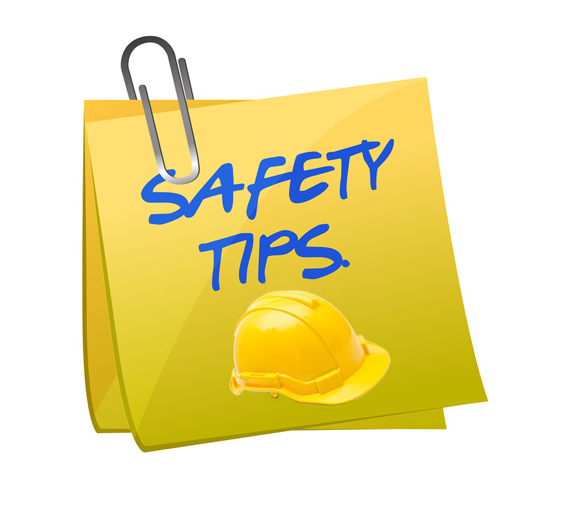
Hi folks,
The vast majority of tradesmen are hardworking genuine people. Nevertheless, when you are posting jobs, it is very important to take the same precautions online as you would offline. Below I have listed some tips safety tips for hiring a tradesman. By safety tips, I mean how to keep your money safe and how to ensure the work is carried out to a high standard as well as ensuring the work itself is carried out safely. I have posted these tips many times before but they are extremely important so I am posting them here again. Please make sure to read and implement them if you are hiring a tradesman to carry out work in your home or business. Also, please share them with your friends:-
1. All quotes should be in writing. The quote should specify a number of details including work to be done, materials to be used, timeframe and payment stages. The quote should also include an appendix at the back showing examples of previous work done and outlining the building contractor’s qualifications, references, insurance cover, tax clearance and anything else that is relevant.
2. Hire a certifier (i.e. a suitably qualified architect, building surveyor or building engineer) from the outset if the job is anything to do with a new build, building renovation or extension. Please remember that the builder must not begin work until the certifier has inspected the site and has given the go-ahead in advance.
There are a number of reasons why work should be inspected by a certifier. In addition to compliance with building regulations, you will need to have the works certified if you or your family ever go to sell the property in the future. The certifier will make sure that a number of details have been done properly and these include, foundation, structural strength, damp proofing, insulation and ventilation. If any work is done before the certifier arrives, then some of it may be covered up and he/she will not be able to verify that it was done correctly.
We recommend that you employ the certifier yourself rather than depending on the builder to employ one.
3. The cheapest quote may not be the best quote. Try to go for quality over price. You will get an idea of the quality of the building contractor’s work if you ask for phone numbers of some of their references so that you can ring them or better still go and visit previous jobs.
4. If you are planning to hire a tradesman, make sure to request a copy of their insurance policy before the work commences. You may also ask your insurance broker for advice on the policy and if you will need any additional cover during the project.
5. Never pay for work in advance! Agree on some sort of stage payments for the job and only pay for each stage after it has been completed and has been inspected by the certifier. If you must pay in advance we recommend using escrow.com as an escrow payment facility which gives added protection to the building contractor and to you the customer. To visit our affiliate page on Escrow.com click here. If you are getting a loan or mortgage to carry out the work, your bank or financial institution will effectively act as an escrow facility by providing the funds after each stage is signed off.
6. If more than one tradesman or contractor is working on the job, you are obliged under the Safety, Health and Welfare at Work (Construction) Regulations 2013 to carry out certain safety measures. For example, you must appoint a project supervisor and fill out a safety checklist. The certifier may also be able to help you in this regard. Even if there is only one tradesman working in your home, or if you are doing the work yourself, you should always be vigilant. For example, make sure that work is carried out safely and that tools, appliances or furniture etc. are firmly secured and can’t fall and cause an injury to anyone.
7. Make sure to have a contract with the tradesman. The contract will be similar to the quote in content but may also contain the terms and conditions. The contract is a written agreement which will specify a number of details in advance of the project starting, including work to be done, materials to be used, time frame, payment stages and terms and conditions.
8. The most common complaint with building jobs is that they run over time. If your job runs 10% over time it may not be a problem but if it runs 50% or 100% over time that may cause you considerable additional cost and inconvenience which you want to avoid. If it is important to you that the job is done within a certain time frame, then consider including bonuses or penalties in the contract for meeting or exceeding the time frame agreed. The certifier may be able to advise on a suitable wording for your contract in this regard.
9. If you are concerned in any way with the progress or quality of the work make sure to communicate your concerns in writing to the tradesman in the hope he will provide a satisfactory resolution in a reasonable amount of time. If the tradesman fails to address your concerns you might consider a dispute resolution process, mediation and/or arbitration to help resolve your issues. Please feel free to contact us if you require further information. Please note that in the event of a dispute, your best backup will be having used a certifier to sign off on each stage and having agreed on staged payments which are only paid after it has been inspected and signed off by the certifier.
Safety Tips for Hiring a Tradesman – Summary
In summary I would say the most important tip is to hire a certifier before the work commences if the job is anything to do with a new build, extension or renovation. For all jobs big or small, make sure never to pay for the work in advance, only pay for the work after it has been completed and signed off. Here is a short summary of the points listed above:-
1. All quotes should be in writing.
2. Hire a certifier before the job starts.
3. Ask for phone numbers of some of references so that you can ring them or go and inspect the work done.
4. Check insurance.
5. Never pay for work in advance! Agree on some sort of stage payments for the job and only pay for each stage after it has been completed and has been inspected by the certifier.
6. Check what you need to do under the health & safety regulations.
7. Make sure to have a contract.
8. Consider including bonuses or penalties in the contract for meeting or exceeding the time frame agreed.
9. If you have any concerns notify the tradesman in writing and if that fails consider a dispute resolution process, mediation and/or arbitration.
We hope these tips help you get the most from your job, if you have any questions please feel free to leave a comment below or to contact us here
Cheers
Oliver Dempsey
Tradesmen.ie
9th November 2019
Here are some other articles that you might be interested in below:-
Construction Work Safety in the Home
A discussion on the Building Control (Amendment) Regulations 2013
Do I need Planning Permission?
Certifying my Building or Renovation
Construction Contracts, Why are they needed?
House Extension Cost Survey
Conservatory and Sunroom Prices
Attic Conversion Prices
New Build House Cost Survey
Top 10 Tips to Building a New Home






